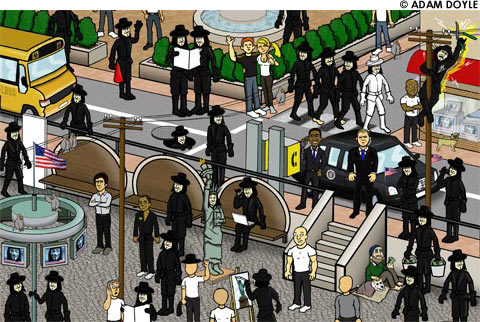The first time that I heard about Anonymous was four years ago. I was then a rookie writer at the Phoenix, and our receptionist patched through a cold call from a self-described unmasked hacker named Gregg Housh. Crack salesman that he is, within minutes Housh had my full attention, and was schooling me with lore of his real-life and virtual crusades with the Internet collective known as Anonymous. I was intrigued by their latest scrum — a war with the Church of Scientology — and decided to dig deeper. After a week of researching and scanning their networks, I found myself not only obsessed with the peculiar Internet Relay Chats (IRC) and image boards that Anons inhabit, but fascinated by their unique embrace of everything from vigilantism to bukkake.
Most coverage of Anons and their shenanigans — from their beef with Scientology to their WikiLeaks-related hits on MasterCard — has been superficial. Low points have come from television outlets like the Los Angeles Fox News affiliate that garnered derisive memetry by labeling Anonymous an "Internet hate machine." On the opposite end of that spectrum is a select cadre of insider writers and academics, many of whom the mainstream media rely on for explanations. But in between the broadcast goofballs and the experts, accurate long-form reporting on Anonymous is anomalous. There's also been little discussion of the actual act of covering Anonymous — even as its affiliates, like Occupy Wall Street, and the group's numerous targets have rocked headlines.
As we're all increasingly connected to an online culture over which Anonymous wields great influence — from silly Tumblr trends to mass calls for activism — it's no longer adequate for journalists to only kind of get it. This is a critical concern, and one that's been debated extensively since the June release of Parmy Olson's 400-plus page opus, We Are Anonymous: Inside the Hacker World of LulzSec, Anonymous, and the Global Cyber Insurgency. In blog posts, on chats, and at interactive conferences, journalists and Anons alike are discussing the unique challenges of reporting on this hard-to-peg troop of trolls and hackers, geeks and Web warriors. While they sometimes disagree on tactics, collectively these muckrakers set the tone for this burgeoning line of journalistic and anthropological inquiry. Using their stories, we've devised a blueprint for not just covering, but understanding Anonymous.
 |
ACCLIMATE. Olson began looking at Anonymous in late 2010, when Forbes assigned her to investigate their attacks on PayPal's Web site. Along with MasterCard and other money-transfer companies, PayPal had severed ties with WikiLeaks after the whistleblower site's controversial ringleader, Julian Assange, fed classified Department of Defense documents to a range of news outlets. Seeking to avenge WikiLeaks, Anons organized Distributed Denial of Service (DDoS) attacks on PayPal, and were eventually able to knock the site offline once a few heavyweight hackers lent critical firepower. Her coverage led Olson to an elite posse known as LulzSec, core members of which became the lens through which We Are Anonymous unfolds.